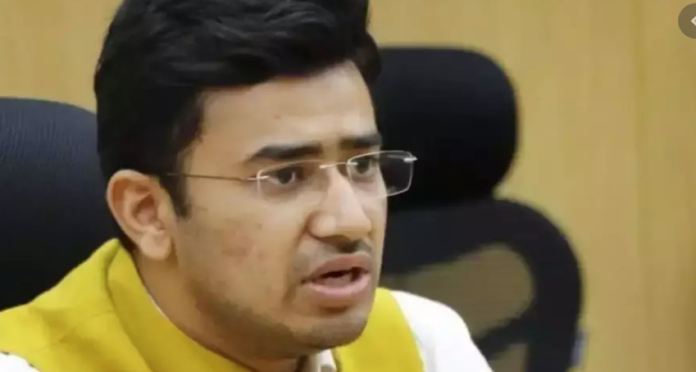Information and Technology minister Ravi Shankar Prasad today promised enough tweaks in existing laws to ensure that Social Media giants such as Twitter fall in line rather than choose to be defiant in the guise of “freedom of expression.”
The arbitrariness of Twitter where it finds storming of Capitol Hill in the United States problematic but not when it happens at Red Fort; where it becomes selective in censoring tweets which encourage secessionist forces and incite violence, has led to Centre planning to get its act together against the microblogging giant.
But how could Centre crack the whip? What tweaking does it need to do to make sure Twitter doesn’t become a law in itself, overriding India’s Constitution and existing laws?
Well, the young BJP parliamentarian from Karnataka, Tejasvi Surya had written a letter to Prime Minister Narendra Modi last September which could be instructive on the matter.
Surya had emphasised the need to create a new legal framework to regulate social media platforms. On September 3, 2020, Tejasvi had requested Modi to modify Rules 3 (2), 3 (4) and 3 (5) of Information Technology (Intermediary guidelines) Rules, 2011, to effectively regulate “social media platforms”. He also said that unregulated overreach of social media tech giants “could pose a threat to the democracy of our country”.
Incidentally, Tejasvi is a member of the Standing Committee on Information Technology, Joint Committee on Offices of Profit and Joint Parliamentary Committee on Personal Data Protection Bill, 2019. He had written a nine-page letter to the PM asking him to change the existing laws dealing with information technology. Indeed, the need to make more stringent laws dealing with IT sector have been felt for a long time. Mainly because the sector has grown exponentially, perhaps beyond anyone’s imagination. He felt that the laws made in 2011 were not adequate to deal with the IT sector a decade later.
Surya said that social media platform giants Twitter, Facebook and its affiliates” were involved in “actively regulating third party content on their platforms”. These tech giants used alogrithms to effectively edit or censure third party content on their platforms “in the garb of removing fake news or hate speech”.
By using discriminatory alogrithms or by direct interventions, they have “regularly influenced democratic opinions during the time of elections” in large vibrant democracies. This means they were not mere intermediaries but become an active participant, taking sides in such contests.
The most glaring case is the permanent suspension of Twitter handle of Donald Trump in his final days in White House. Other tech giants like Google and Facebook too are becoming a law unto themselves and facing scrutiny by lawmakers across continents.
Several countries have flagged the issue that with very deep pockets, these tech giants were often cocking a snook at them. This was the essential background for Tejasvi emphasising the need for new IT laws to effectively regulate the social media.
Instead of being objective and mere conduits that act as amplifiers of an opinion, the Social Media platforms were often seen taking sides. A case in point is Twitter removing Bollywood actress Kangana Ranaut’s Tweet in response to Rihanna’s Tweet on the farmers’ protests. By doing so, it effectively chose to take sides, letting one opinion (of Rihanna) be amplified, and curbing Kangana. This is straight and simple editorial control, something of a role not expected of mere intermediaries.
In his letter, Tejasvi wrote that India is “the world’s largest democracy covering possibly the most varied demography”. It also has the “fastest growing number of internet users”, the country needs to “review our existing laws in the light of the same”, he emphasised.
He pointed out that these SM platforms claim themselves to be “intermediaries” as per the meaning attributed to the term in IT Act, 2000. He also said that the “role of the Intermediary in law envisages no intervention on the content of the third party users using their networks or platforms”. This intervention is something of an everyday reality now with various tech giants clearly taking sides.
Making a strong plea for bringing in new laws to keep pace with the IT evolution, Tejasvi said: “In summation, the powers under Rule 3(2), 3(4) and 3(5) of the Guidelines effectively violate the very principal assumption of the role of Intermediary under the Act (read existing IT Act).” He further stressed that it “enables the Intermediaries” to “egregiously overreach the restrictions of Free Speech allowed under the Constitution”.
This means that the Guidelines have effectively handed over the power of censorship to private parties thus greatly “infringing the fundamental right of free speech of the citizens of India”, he concludes. As such, it is imperative to “repeal such guidelines and issue new guidelines for Intermediaries”. Alternatively, various SM platforms need to be defined separately “as a class of its own under the IT Act for ease of regulation of their rights and powers”.


